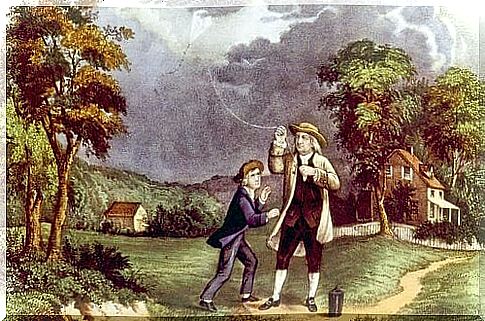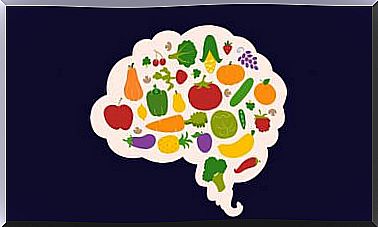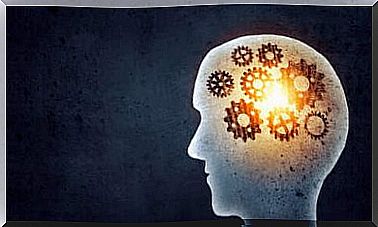Discover The Amazing Ben Franklin Effect

The famous scientist Benjamin Franklin once said that “a father is a treasure, a brother a comfort, a friend is both.” According to that phrase, it would be understandable for us to make an extra effort to please our friendships. However, why on many occasions do we also make an effort to please people we don’t like? And… Why is this curious phenomenon called the Ben Franklin effect?
The explanation stems from a very curious story, which we cannot fail to share. This account is based on an everyday, and sometimes unconscious, action that our brains take to free us from this discomfort produced by the dissonance or lack of coherence between what we think and what we do. We will see!
What is the origin of the Ben Franklin effect?
The origin of the Ben Franklin effect is really curious. We know that Benjamin Franklin, inventor of the lightning rod, was one of the founders of the United States. But this important figure had a strong opponent in the Legislative Assembly. This formidable adversary had no problem publicly demonstrating his objections to the scientist’s political program, both in public and in private.
This singular animosity did not go unnoticed by Franklin and, moreover, it worried him greatly. However, how he wanted to solve it is curious. To do this, he set out to gain the trust of his critical adversary.

To do this, Franklin thought of nothing but asking his opponent a favor. As he knew he was dealing with a person of high cultural level, he decided to ask for an exceptionally rare copy from his private library, without Franklin having deep interest in such a work.
The opponent, faced with this request, felt especially honored and flattered, so he did not take long to respond. That’s how Franklin won over his opponent, making room first for a rapprochement and then for a friendship that lasted a lifetime.
What’s Behind the Ben Franklin Effect?
Although this unique story gave rise to the name of the Ben Franklin effect, the truth is that it hides a deep psychological basis. Thus, behind this very human need to please, there is actually a cognitive dissonance … or rather, it is motivated by the interest in preventing such dissonance from occurring.
In other words, what Franklin achieves with his request is to provoke a contradiction in his opponent : on the one hand they are strong political opponents, on the other he can do him a favor. The situation itself is not contradictory, however, it is likely that Franklin’s opponent perceived a certain contradiction in it: a feeling of political antipathy towards a sympathetic way of acting.
The perception of a contradiction of this kind usually produces an uneasiness, so that the person tends to readjust his way of thinking. That’s exactly what Franklin’s opponent did, probably also because the value his behavior (that of lending the book) represented had a greater social and personal desirability than an animosity based solely on political motives.
So, somehow, Franklin’s opponent, to justify his generosity, had to change his view of him. On the other hand, this new perspective undoubtedly facilitated the beginning of a friendship that would later be consolidated.
Does the brain try to justify the unjustifiable?
Apparently our brain tries to justify our actions and it does so trying not to damage the image we have of ourselves. It is this fact that gives rise to cognitive dissonance. Then we take steps to make it go away. For example, in a military conflict – which we know is unjustifiable, but in which, at the same time, we participate (even if with the complicity of silence) – our mind searches for reasons to justify our position. These reasons can be linked to the defense of freedom, patriotism or even religion.

On the other hand, the reasons or news that might justify our position from that point on will be more encouraging. They will catch our attention and we will keep it in our memory with greater ease. As you can see, cognitive dissonance is part of our life. On a professional and personal level, in many situations we face the justification of acts that we do not agree with.
In fact, it’s very likely that you’ve worked with people you don’t like, or you’ve been kind enough to help someone you don’t like. Whatever the case, your mind will activate mechanisms to explain and justify this action. So, chances are, after you’ve done someone a favor, you’ll have a better opinion of them than you used to.
It’s curious how our mind works. It tries to protect the image we have of ourselves and the coherence between our thoughts and actions by modifying our opinions. Furthermore, this phenomenon does not stop there, since once the justification or the new opinion is produced, we will be more sensitive to all types of information that support it and more skeptical of any phenomenon that opposes it.









